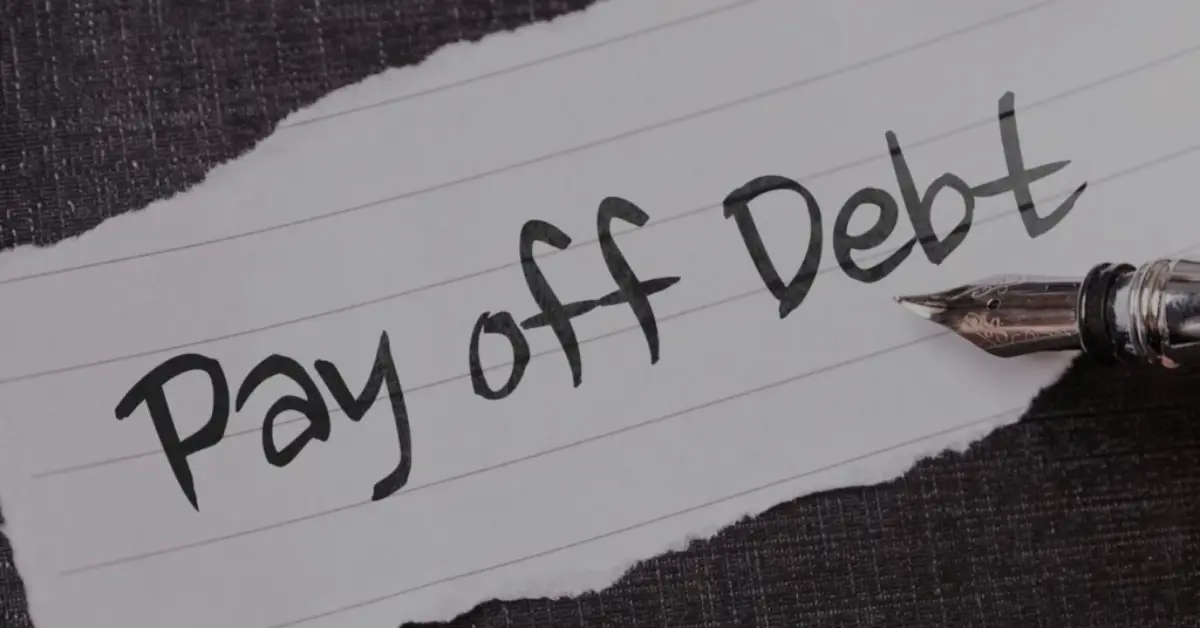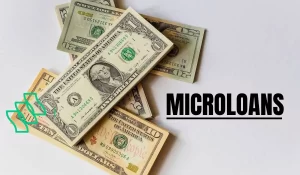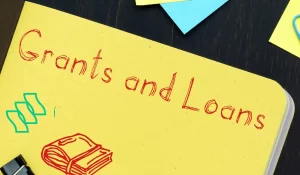Pay off loans are the type of loans designed to help you manage paying your existing debts by taking out a new loan. You get a pay off loan and pay all existing loans. After that, you pay the new loan with a single monthly payment. You should necessarily consider that before getting a pay off loan your monthly income should be at least double than the total loan amount.

- Amount = $5,000 to $500,000
- Loan Term = 4 to 24 months
- Interest Rate = 1.11%
4.8
editorial team. We score based on factors
that are helpful for consumers, such as
how it affects credit scores, the rates and
fees charged, the customer experience,
and responsible lending practices.
- Min. Amount = $10,000
- Max Amount = $500,000
- APR = Factor rate starting at 1.11%
4.8
editorial team. We score based on factors
that are helpful for consumers, such as
how it affects credit scores, the rates and
fees charged, the customer experience,
and responsible lending practices.
Best for large business loans

- Loan Amount = $25,000 - $3,000,000
- $10,000 in Monthly Rev
- No minimum credit score requirement
4.9
editorial team. We score based on factors
that are helpful for consumers, such as
how it affects credit scores, the rates and
fees charged, the customer experience,
and responsible lending practices.
Best for large business loans

- Min Amount = $5,000 - 1,500,000
- APR range Not disclosed
- Minimum Credit Score 570
4.7
editorial team. We score based on factors
that are helpful for consumers, such as
how it affects credit scores, the rates and
fees charged, the customer experience,
and responsible lending practices.
Best for Small business loans

- Min Credit Score = 620
- Loan Amount = $10K-$5M
- Term = 6 months - 10 years
- APR = Variable
4.8
editorial team. We score based on factors
that are helpful for consumers, such as
how it affects credit scores, the rates and
fees charged, the customer experience,
and responsible lending practices.

- Check Your Eligibility
- Get $10K to $2M
- 24/7 Support
4.8
editorial team. We score based on factors
that are helpful for consumers, such as
how it affects credit scores, the rates and
fees charged, the customer experience,
and responsible lending practices.

- Amount = $10,000 to $1,000,000
- Factor Rate = Starting at 1.24
- Term = 2 to 12 months
4.7
editorial team. We score based on factors
that are helpful for consumers, such as
how it affects credit scores, the rates and
fees charged, the customer experience,
and responsible lending practices.
How Pay Off loans help pay Debt?
If you are looking for a pay off loan to clear pay off your debt, you’re not alone. Many Americans face this problem each year. They want to get rid of their debt. A common solution to overcome this problem is Pay Off loan.
Pay off loans mean combining several high-interest loans together and then offering a single monthly payment with a low interest rate. To do this, you usually take a pay off loan to pay off other debts, and after the financial conditions become normal, they repay the new loan.
These loans are usually offered for unsecured loans like credit card debt. You can also use them to pay other debts like store cards and medical bills. For example, if you have debts from three credit cards and also have some hospital and store bills, Pay off loans or debt consolidation loans can be a perfect fit for you. It is preferable to get a single pay off debt snowball loan and then pay it on a single monthly payment.
What are APRs, Rates and Terms of Pay Off Loans?
While you are looking for the pay off loans, build a thorough knowledge about how to choose the best pay off loan. This includes having a good understanding of Annual Percentage Rates (APRs), Interest rates and terms and conditions of the loans. Here are some factors to determine how to assess these:
Interest Rate:
This is the percentage charged by a lender on borrowed money. Most of the pay off loans offer fixed interest rates that means that your monthly payment won’t change.
APR (Annual Percentage Rate):
APR includes the interest fees and other costs. A loan with lower APR means that you have to pay a minimum payment and comparably low overall amount. It’s an important factor to consider in the field of loans.
Loan Term
Loan term means the total amount of time in which you have to pay the loan. It usually ranges between two to seven years. Some lenders may grant you longer or shorter loan terms.
Benefits of Getting a Pay Off Loan to Pay Debt
Pay Off loans offer several benefits, the most important being potential savings. These loans usually offer low interest rates as compared to other credit card loans. This helps you pay off the debt faster as more of your earnings go towards the principal amount. Moreover, it makes loan payment management easier rather than handling complex multiple debts with one monthly payment.
Disadvantages of Using Pay Off Loans
There are also some disadvantages of using pay off loans. You have to pay your monthly payments on time otherwise you may be subjected to late fees and damage your credit score. If you have a poor credit score, getting a loan can be difficult. Most of the lenders require a minimum 630 credit score to qualify auto loans. If you’re already missed some credit card payments, your score might be too low to get approved for the loan.
Situations When Getting a Pay Off loan Make Sense
Here are some situations when you getting a Pay Off loan may be a good idea:
- When you have several types of debt.
- When you find it hard to manage multiple monthly bills.
- Your credit score has improved so that you qualify for comparably low interest loans.
- Your monthly debts (including rent and mortgage) are less than half of your monthly income.
Checkmarks for getting a Pay Off Loan
Check Your Credit Score
Before you apply for a debt consolidation loan, it’s necessary to have a look at your credit score. Your credit score depends inversely on the interest rates and APRs.It means that higher the credit score lower the interest rates and vice versa. If your score is high, you’ll likely get better terms for personal loan. If it’s low, take steps to improve it. To improve your credit score, make sure to pay off small debts, ensure all payments are on time, and avoid new credit applications to boost your score.
Research and Compare Lenders
Finding the right lender is important much you owe to improve your financial conditions. Start comparing the banks, credit unions, and online lenders, as each of these offer different rates and terms. Don’t just focus on the interest rate; keep an eye on the lender’s reputation and customer reviews. Read reviews and recommendations to ensure choosing a perfect lender that meets your needs.
Gather Necessary Documents
When you’ve selected lenders according to your needs, prepare all required documents. These documents usually include pay stubs, tax returns, and details of your current debts. Having everything ready will speed up the application process for personal loans and increase the chances of loan approval.
Frequently Asked Questions
How to pay off $5000 in debt in 6 months?
If you’re unable to pay your credit card bills even during promotional APR periods then using an account transfer is the best option. In this example, the six-month intro APR balance transfer credit card allows borrowers who are on $600 in credit card debt to repay their debt interest-free with $833.33 per month. July 17th, 2022.
Balance transfer card
The balance transfer credit card allows you to transfer more than two balance cards to one card with a zero per cent ARP. You can also make payments in six to twenty-eight months. Think about the impact of this 0% introduction period.
These cards usually have a lower cost of ownership than those of consumers who borrow money transferred through a card, Waters said. Keep a close eye on fees incurred when transferring money. Balance Transfer credit cards require the applicant to possess an adequate credit score.
Consider debt consolidation to get out of debt faster
In debt consolidation, a special bank account can combine minimum payments on a number of high-interest debts into a single payment, at ideally lower interest rates. A consolidating program is an option if you want to lower a debtor’s monthly payments. Increase your budget. Reduce the time to repay debt.
Credit cards for balance transfers or debt consolidation loans are some ways to get into the consolidation process. Generally, scores above 690 are considered good credit scores by lenders.

- Amount = $5,000 to $500,000
- Loan Term = 4 to 24 months
- Interest Rate = 1.11%
4.8
editorial team. We score based on factors
that are helpful for consumers, such as
how it affects credit scores, the rates and
fees charged, the customer experience,
and responsible lending practices.
- Min. Amount = $10,000
- Max Amount = $500,000
- APR = Factor rate starting at 1.11%
4.8
editorial team. We score based on factors
that are helpful for consumers, such as
how it affects credit scores, the rates and
fees charged, the customer experience,
and responsible lending practices.
Best for large business loans

- Loan Amount = $25,000 - $3,000,000
- $10,000 in Monthly Rev
- No minimum credit score requirement
4.9
editorial team. We score based on factors
that are helpful for consumers, such as
how it affects credit scores, the rates and
fees charged, the customer experience,
and responsible lending practices.
Best for large business loans

- Min Amount = $5,000 - 1,500,000
- APR range Not disclosed
- Minimum Credit Score 570
4.7
editorial team. We score based on factors
that are helpful for consumers, such as
how it affects credit scores, the rates and
fees charged, the customer experience,
and responsible lending practices.
Best for Small business loans

- Min Credit Score = 620
- Loan Amount = $10K-$5M
- Term = 6 months - 10 years
- APR = Variable
4.8
editorial team. We score based on factors
that are helpful for consumers, such as
how it affects credit scores, the rates and
fees charged, the customer experience,
and responsible lending practices.

- Check Your Eligibility
- Get $10K to $2M
- 24/7 Support
4.8
editorial team. We score based on factors
that are helpful for consumers, such as
how it affects credit scores, the rates and
fees charged, the customer experience,
and responsible lending practices.

- Amount = $10,000 to $1,000,000
- Factor Rate = Starting at 1.24
- Term = 2 to 12 months
4.7
editorial team. We score based on factors
that are helpful for consumers, such as
how it affects credit scores, the rates and
fees charged, the customer experience,
and responsible lending practices.







One Response